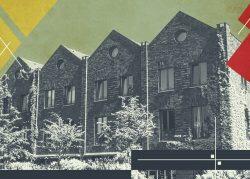The Bay Area apartment pipeline has constricted.
The San Francisco–Oakland–Hayward metro market is expected to complete 7,400 apartments this year, a 26 percent drop from 2021, the San Jose Mercury News reported, citing data from RentCafe.
Meanwhile, the San Jose-Sunnyvale-Santa Clara metro is poised to complete 3,000 units, a 50 percent drop from last year.
The declines come in tandem with nationwide labor shortages, rising material prices and supply chain issues. But the Bay Area blockage has been made worse by long-standing roadblocks to development, housing experts and advocates say.
They blame limited land zoned for multifamily homes, burdensome environmental reviews and glacial permitting and approvals often exacerbated by pressure from neighbors to delay or block new apartments.
These all work to jack up the region’s already high building costs, discouraging construction despite the expensive rents developers can charge for new apartments in the Bay Area.
“When you add all of those factors together, it has really seized up the pipeline,” Michael Lane, state policy director with Bay Area think tank SPUR, told the Mercury News. “The economics simply don’t work.”
The decline of apartment construction varies by city, with San Francisco expected to see a 58 percent drop in the number of apartments completed this year, according to data from RentCafe.
In San Jose, only half as many apartment units are set to come online as in 2021. In Oakland, apartment construction is predicted to fall 80 percent.
State housing officials launched an unprecedented probe last month into why San Francisco takes longer than anywhere else in California to approve new homes.
To jumpstart construction and alleviate a statewide housing shortage, lawmakers in Sacramento pushed through two bills this month to make it easier to redevelop underused shopping malls, office buildings and parking lots into new apartments and townhomes.
The bills are expected to be signed by Gov. Gavin Newsom.
In New York, Miami and other major cities, development is booming as people return after fleeing during the height of the pandemic.
But in San Francisco and Bay Area economic hubs that have embraced remote work more than much of the country, recovery has been slower. Bay Area rents, while gaining from their low point in 2020, have yet to reach pre-pandemic levels.
— Dana Bartholomew
Read more


